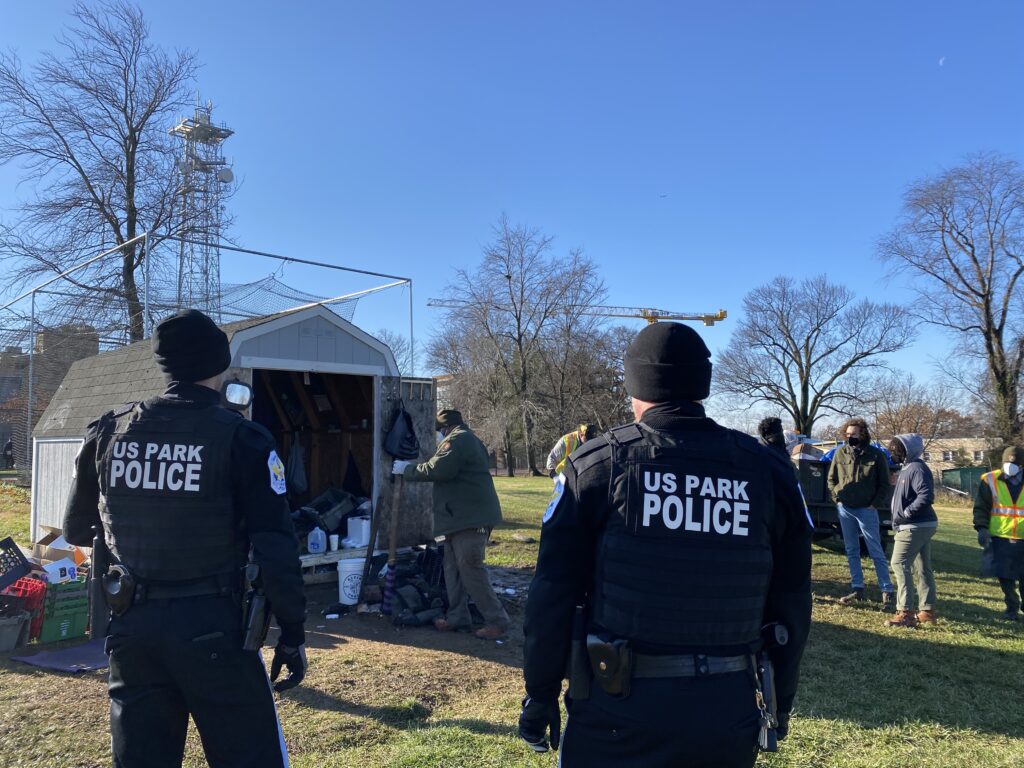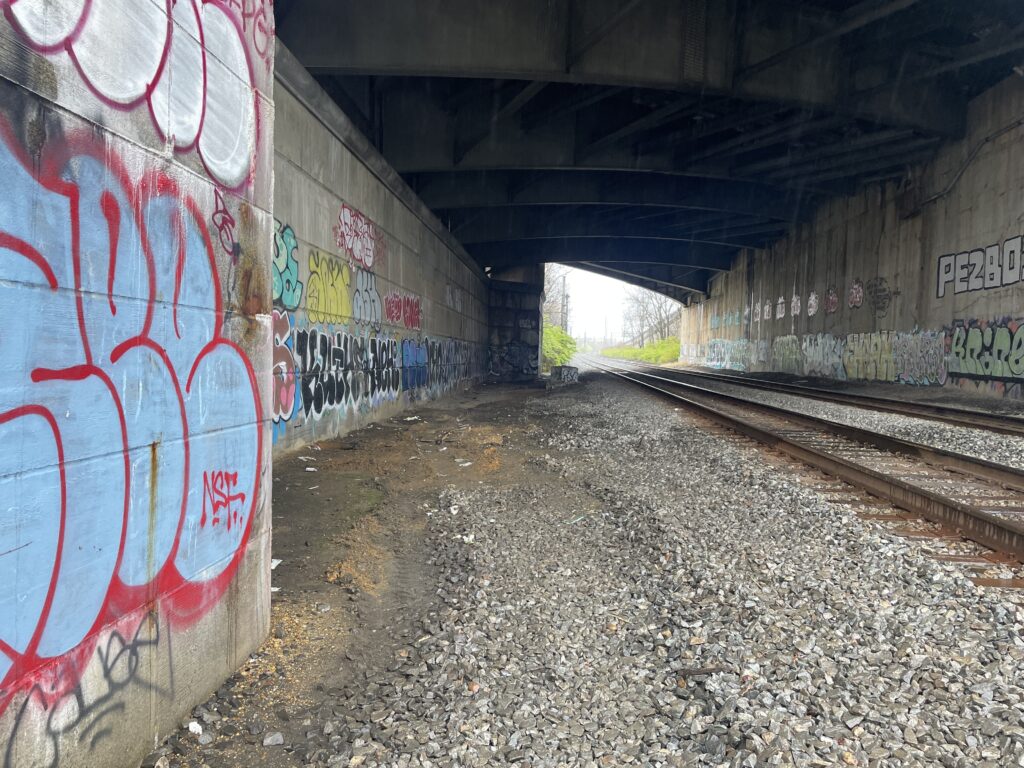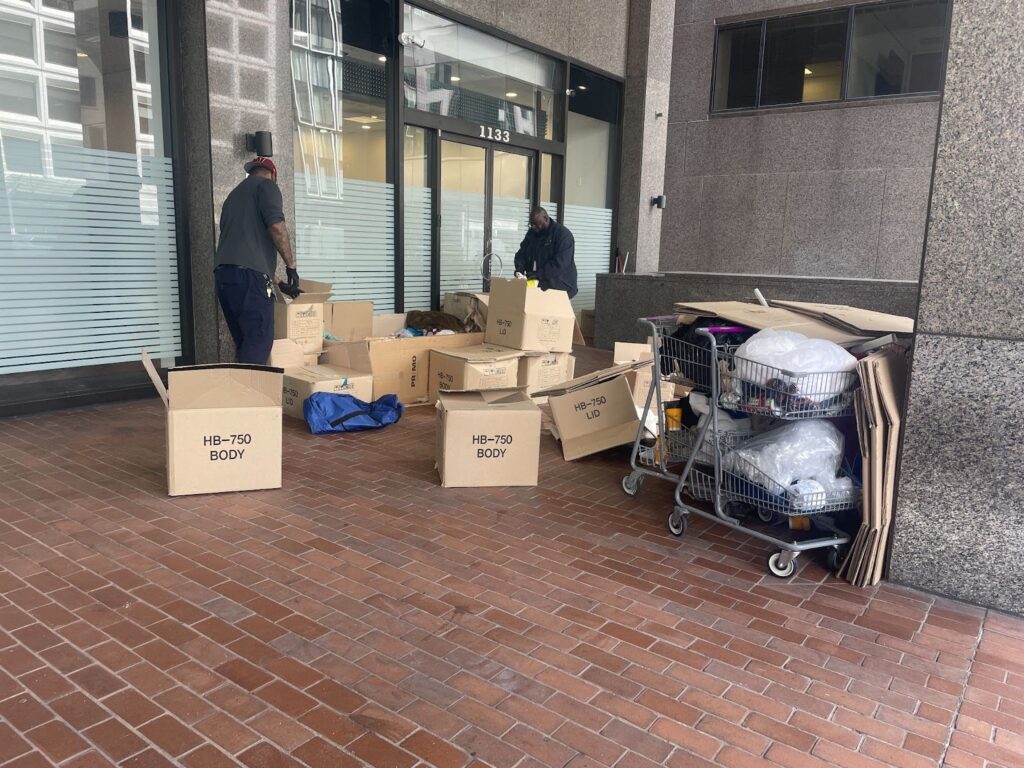We’re Remora House, a mutual aid collective that started in March 2020 to provide material support and advocacy for unhoused and recently housed people in Washington, D.C. Our work often brings us to encampments throughout the city. However, since 2020, we have noticed a disturbing trend. More and more people are being evicted from federal properties without being offered appropriate support and it needs to stop.
The most recent evictions occurred during the height of hypothermia season, and unhoused residents living in these encampments were offered zero help or services. Fences, trash trucks, encampment clearings, and concrete barriers do nothing to help end homelessness. Housing, we know, ends homelessness. The end goal should not be criminalizing and evicting encampments, but rather, we should focus attention on making them unnecessary. Yet, despite widespread knowledge that encampment evictions are ineffective, the National Park Service (NPS) continues to do so, and it is making the situation worse.
As NPS and the city evict more and more encampments across the city, there are less places for unhoused people to live. Encampments provide unhoused people with small bits of dignity, autonomy, security, comfort, and mutual aid that has been proven to speed up the housing process. When encampments are evicted, unhoused people are not only severed from these vital community relations, they are also moved around the city.
This often makes it hard for outreach workers to find their clients and help them along the housing process. At evictions, unhoused people are often subjected to intense stress and anxiety, property destruction, verbal abuse and harassment from government workers, and sometimes even physical violence, such as when an unhoused person was tased by Park Police and involuntarily committed after refusing to leave her tent during the Columbus Circle eviction. Throughout the pandemic, however, NPS has continued to pursue this ineffective and harmful practice.
A brief history of encampment evictions in DC
On Friday, Dec. 16, 2022, NPS evicted a homeless encampment from the Fort Reno Park in northwest Washington D.C. That morning, groups of people helped unhoused neighbors pack and move their belongings as they figured out what to do next. A dozen or more federal workers from NPS, and a handful of city workers from the Deputy Mayor of Health and Human Services (DMHHS), the Department of Parks and Recreation (DPR), and the Department of Behavioral Health (DBH) stood around, watching but not offering any help. Heavy rains and flash floods the day before made the ground wet and muddy. Wet shoes, cold fingers and a chilly winter wind didn’t help either. Two days prior, on Dec. 14, the National Mall and Memorial (NAMA) division of NPS evicted the encampments at Scott Circle. This began NPS’ plan to clear all encampments on NPS property by the end of 2023, reinforcing a “no camping” law passed in 1984. As Jeff Reinbold, NPS superintendent of NAMA, noted, NPS stopped enforcing the “no camping” law in 2020 during the start of the COVID-19 pandemic. Historically, NPS strictly enforced its “no camping” law, using Park Police to forcibly evict unhoused people with little to no warning. Now, as the CDC guideline against clearing encampments wanes, NPS is reverting back to “normal.”
However, Scott Circle wasn’t the first encampment NPS evicted since the onset of the pandemic. In July 2021, NPS evicted an encampment at 2nd and D Street NE. The next month, NAMA evicted people from Burke and Gompers Parks in northwest D.C. Residents from the 2nd and D Street NE camps had moved a block away to 3rd Street and Massachusetts Avenue NE, after being evicted also in October, 2021.
Nearly a year later, in June 2022, NAMA evicted a large encampment from Columbus Circle in front of Union Station where 30 or more people lived, as well as an encampment on 11th and I Street NW. On Aug. 24, 2022, NAMA evicted another camp from Massachusetts Avenue and 9th Street NW. Most of these areas were fenced in, preventing unhoused people from moving back. Over a year later, these fences remain. Then NAMA evicted the encampments at Scott Circle on December 14, and Fort Reno on Dec. 16, 2022.
The number of evictions NPS conducted is likely much higher. We only heard about the Fort Reno eviction because someone reached out. While helping residents at Fort Reno, we overheard Parks Police discussing another encampment being evicted at the same time. The next NPS eviction we know of will be at McPherson Square, where 60 or more unhoused people live.
Many of those residents moved there from Union Station, Burke and Gompers, or Scott Circle — now another eviction looms. Notice signs informing unhoused people of the upcoming eviction were posted on Oct. 24, 2022. However, the sign simply says the eviction will occur “no later than Wednesday, April 12, 2023.” This uncertainty only adds to the daily stress and anxiety experienced by unhoused people.
An ineffective policy
As the eviction wound down at Fort Reno Park, one remaining resident packing up the last of his belongings pointed to a nearby cluster of city workers. “What I want to know is where I’m supposed to go now? Where’s my voucher?” One DBH employee stepped forward and quietly muttered something about talking to his case worker about getting a voucher and that he could stay in a shelter that night. “Would you stay there? No, then why are you telling me to go there?” he fired back.
The DBH worker stood and stared, silent. While some people argue that clearing encampments is a humane option that pushes people to sleep inside instead of risking hypothermia in a tent, the fact of the matter is the alternatives are often worse (you can read more about why shelters are inadequate elsewhere). Of the six residents of that camp, only two walked away from the eviction with a clear idea of where they would be sleeping that night. Sleeping outside or in a tent instead of a shelter is a rational and calculated decision unhoused people make about their own needs and safety, not something they need to be punished and discouraged to do by constant harassment and violent evictions.








